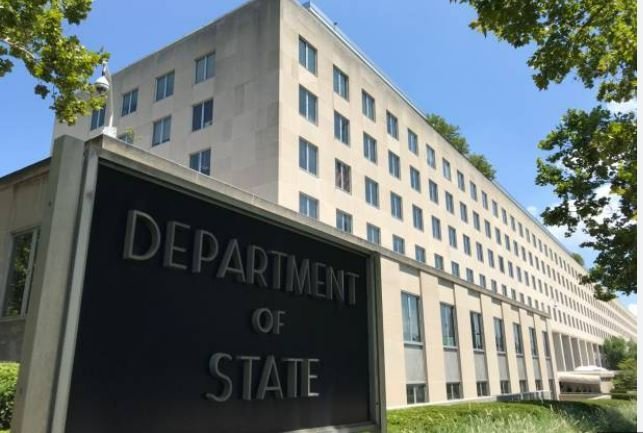Foreign policy has played a major role in international relations. In the post-World War II era, the United States emerged as a global superpower with unparalleled influence over international affairs. However, the pursuit of self-interest over rational diplomacy has, at times, led to flawed foreign policies, disrupting peace and unity across the world. This post aims to shed light on ten examples of such policies and the repercussions they continue to impose on global stability.
Additionally, we will explore five instances where the U.S., driven by Cold War dynamics, inadvertently fostered extremism in the pursuit of countering Soviet influence.
1. Vietnam War (1955-1975):
The U.S. intervention in Vietnam, driven by the fear of communism during the Cold War, resulted in a protracted conflict that claimed countless lives and destabilized the region. The Vietnam War showcased the limitations of military intervention and the devastating consequences of pursuing ideological battles at the expense of local autonomy.
2. Iranian Revolution (1953):
The U.S.-backed coup in Iran in 1953, which overthrew the democratically elected Prime Minister Mohammad Mossadegh, had far-reaching consequences. The repressive regime of the Shah that followed sowed the seeds of discontent, ultimately leading to the 1979 Iranian Revolution and the establishment of an anti-American Islamic Republic.
3. Support for Afghan Mujahideen (1979-1989):
During the Soviet-Afghan War, the U.S. supported Afghan mujahideen groups to counter Soviet influence. While achieving the short-term goal of Soviet withdrawal, it inadvertently contributed to the rise of radical Islamist ideologies and laid the groundwork for the Taliban and Al-Qaeda.
4. Iraq Invasion (2003):
The invasion of Iraq based on faulty intelligence about weapons of mass destruction (WMD) showcased the perils of unilateral military action. The power vacuum created by the removal of Saddam Hussein led to sectarian strife, the rise of extremist groups, and a destabilized Middle East that continues to face the consequences even today. ISIS was one of the best examples of the Syrian-Iraq war which left the region in chaos.
5. Arming and Supporting Contras in Nicaragua (1980s):
The U.S. support for the Contras in Nicaragua, aimed at undermining the leftist Sandinista government, resulted in a protracted civil conflict. The Contras’ human rights abuses and involvement in drug trafficking tarnished the image of the U.S. and contributed to regional instability.
6. Bay of Pigs Invasion (1961):
The failed attempt to overthrow Fidel Castro‘s government in Cuba not only damaged U.S.-Cuba relations but also showcased the dangers of covert military interventions without a clear understanding of local dynamics.
7. Israeli-Palestinian Conflict:
The US Foreign policy has miserably failed when the middle east conflict is concerned. The U.S.’s historically biased stance in favor of Israel has hindered the peace process in the Middle East. By aligning closely with Israel, the U.S. has struggled to maintain a balanced approach, impeding efforts to achieve a lasting and just resolution to the Israeli-Palestinian conflict.
8. Support for Authoritarian Regimes:
Throughout the Cold War, the U.S. supported numerous authoritarian regimes in the name of anti-communism. This short-sighted strategy often led to human rights abuses and popular resentment, contributing to long-term instability in various regions.
9. Failure to Ratify Kyoto Protocol (1997):
The U.S.’s refusal to ratify the Kyoto Protocol, aimed at addressing climate change, showcased a disregard for global environmental concerns. This decision hindered international efforts to combat climate change and set a concerning precedent for other nations.
10. Trade Policies and Economic Imperialism:
U.S. trade policies, often driven by economic interests, have been criticized for perpetuating global economic inequality. Exploitative trade practices have led to social unrest in various countries and strained diplomatic relations.
The U.S. never hesitated to support and at times encourage extremism during the Cold War with the USSR ( Russia) :
During the Cold War, the U.S. engaged in strategies that inadvertently fueled extremism as a means to counter Soviet influence:
1. Support for Afghan Mujahideen (1979-1989):
While aiding the Afghan resistance against Soviet occupation, the U.S. support inadvertently empowered radical factions, including those that later formed the Taliban and Al-Qaeda.
2. Operation Cyclone (1980-1989):
The covert CIA program aimed at arming Afghan mujahideen also supported groups with extremist ideologies, contributing to the rise of radical Islamism.
3. Support for Islamic Fundamentalism in Iran (1950s-1979):
U.S. backing of the Shah’s regime in Iran, which suppressed secular and leftist movements, inadvertently contributed to the rise of Islamic fundamentalism.
4. Covert Actions in Central America (1980s):
U.S. support for anti-communist militias in Central America often aligned with groups responsible for human rights abuses and extremist ideologies.
5. Military Aid to Authoritarian Regimes (Cold War Era):
In the pursuit of countering Soviet influence, the U.S. provided military aid to various authoritarian regimes, indirectly fostering extremism and contributing to long-term instability.
The history of U.S. foreign policies post-World War II reveals a complex tapestry of decisions driven by self-interest, ideological battles, and the pursuit of geopolitical dominance. While the U.S. has played a crucial role in shaping the global order, it is essential to reflect on the unintended consequences of flawed policies that have perpetuated instability and hindered the realization of a more peaceful and united world. Recognizing and learning from past mistakes is crucial to forging a more cooperative and diplomatic future on the international stage.

